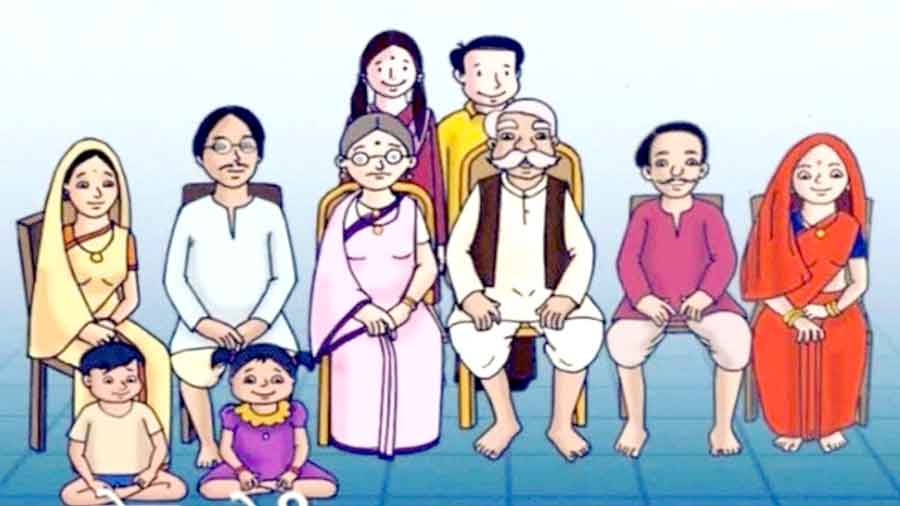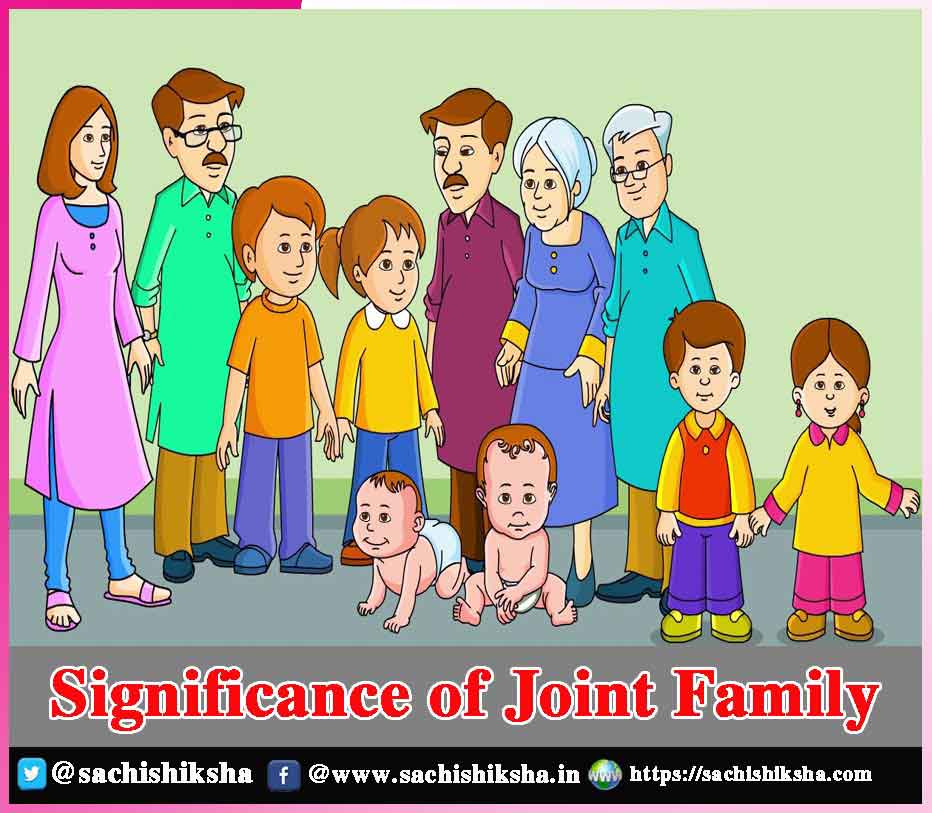Significance of Joint Family
Introduction: Ever since the Vedic era, India has maintained a well-defined traditional family known as the “Ashram System,” which includes the Brahmacharya Ashram, Grihastha Ashram, Vanparstha Ashram, and Sanyasa Ashram. The family dynamic has existed in India since earlier civilizations.
Also Read:
- How to Adjust in New Home After Marriage? Especially in Joint Family
- Indian Joint Families, Need of the Hour
- The American Family Today
- A Family Runs When All Wheels Carry Equal Weight
- Importance of Family Relationships: Excellence of Family Life
Table of Contents
The Notion of a Nuclear Family:
However, society evolves and develops in response to changing circumstances. The notion of a nuclear family began to gain popularity. Freedom, financial independence, fairness, and escape from societal traditions and habits all contributed to nuclear families’ acceptance. Nowadays, other variables that lead to such prevalence include same-sex marriages and stay living or open partnerships. Nuclear families began to form and grow rapidly in India.
Joint Family Foundation for Personal Development:

In such a setting, a person’s health, intellect, mental process, and morals are well-formed. Growing children grow psychologically competent and with a robust consciousness as a result of having many such individuals to look up to and gain from; they acquire the vital virtues of contributing and exercising tolerance to understand variations in viewpoints.
Close Connection Among Relatives & Family Members:
The analysis of the Indian family system merits special attention, not only because they are grown into Indian families, but also because their family structure distinguishes from the western family system in various ways. In India, the family consists not only of the husband and wives and their children, but also of uncle, aunts, relatives, and grandchildren.
One of the primary benefits of a joint family system is the close connection it fosters among relatives and other family members, while also giving children the feeling of protection. Children who are raised in a wider family are said to learn the values of cooperation, compassion, empathy, and respect. This may not always be the situation for children raised in nuclear families.
The closeness and companionship found in closely – knit joint households have a positive impact on children’s emotional aptitude. Of course, this does not guarantee that everything will go fine in Joint families. They, however, have their fair proportion of turmoil, arguments, and misconceptions.
Gratitude For Elders:
Family ties play an essential role in shaping people’s perspectives. Gratitude for elders is one of the fundamental foundations of the Indian family structure. It is disheartening to learn that the elderly are increasingly being committed to care institutions. There could be a variety of causes for this, including a lack of appropriate home space in nuclear families or, in a globalised environment, the relocation of kids abroad.
A further advantage of a joint family arrangement is that grandparents or other household members such as aunts will care for children if both parents are working. Staying with close family members instead of in a daycare or play school will greatly aid in making childhood unique and healthier, which is an important aspect in an individual’s overall personality development.
Caring & Generosity of Elders:
It must also be recalled that the family structure fosters a deep sense of oneness at a young age, sets the path for community stability, and supports unification in general. Elder family members’ characteristics of caring and generosity immediately prompt them to consider a decent future for their offspring by conserving. This, in turn, aids in the building of the country’s economy.
Social cohesiveness & Civic Ideology:
Children who grow and develop in a wider family not only learn patience, forbearance, and a liberal mentality of tolerating other people’s viewpoints, but they also acquire a sportsman’s enthusiasm while interacting with brothers and cousins. The family structure is the source of many ancient traditions, rituals, and ways of life. The family system, in essence, sows the roots of social cohesiveness and civic ideology.
Develops Social & Cultural Values:
Families have a vital role in sustaining and developing a society’s cultural and social values. The UN General Assembly declared ‘The International Year of the Family’ in a resolution passed in December 1989. In another decision in 1993, the General Assembly resolved that May 15 of every year should be commemorated as ‘The International Day of Families. According to the UN,
this day offers a chance to raise awareness of family-related issues and expand knowledge of the social, political, and demographic factors that affect families. Another crucial aspect of a combined family is a shared kitchen or cooking. Everyone in the joint household eats food prepared on the same hearth. A joint family has a division of labour.The female member continues to run the kitchen and oversees the work of the other women. This shared cooking keeps the united family together.
Economic Functions:
A joint family serves several economic functions. It provides its members with meals, clothing, and accommodation. Everyone in the joint family works together cooperatively, which reduces costs that would have been invested on menial labour. Collectively purchasing home articles also saves a lot of money. It helps to increase productivity by preventing farmland dispersion. In this approach, a joint family assures both the families and societies economic prosperity.
Socialism:
Socialism flourishes in a joint family because it relies on the socialism idea. As a result, Sir Henry Maine was correct when he said that the joint family is like an organization, with the father acting as trustee. Contributions from all family members are put into a shared family fund, from which all expenses are covered. The joint family encourages positive social qualities such as hardship, respect, sympathy, solidarity, mutual support and selflessness, among its members, transforming the family into a nursery of social virtues.
Conclusion: The joint family is an unusual and distinct social organization in Indian society. The cohabitation family system is a unique feature of Indian social life. It has been responsible for providing its members with protection, financial assistance, and pleasure since its inception.















































